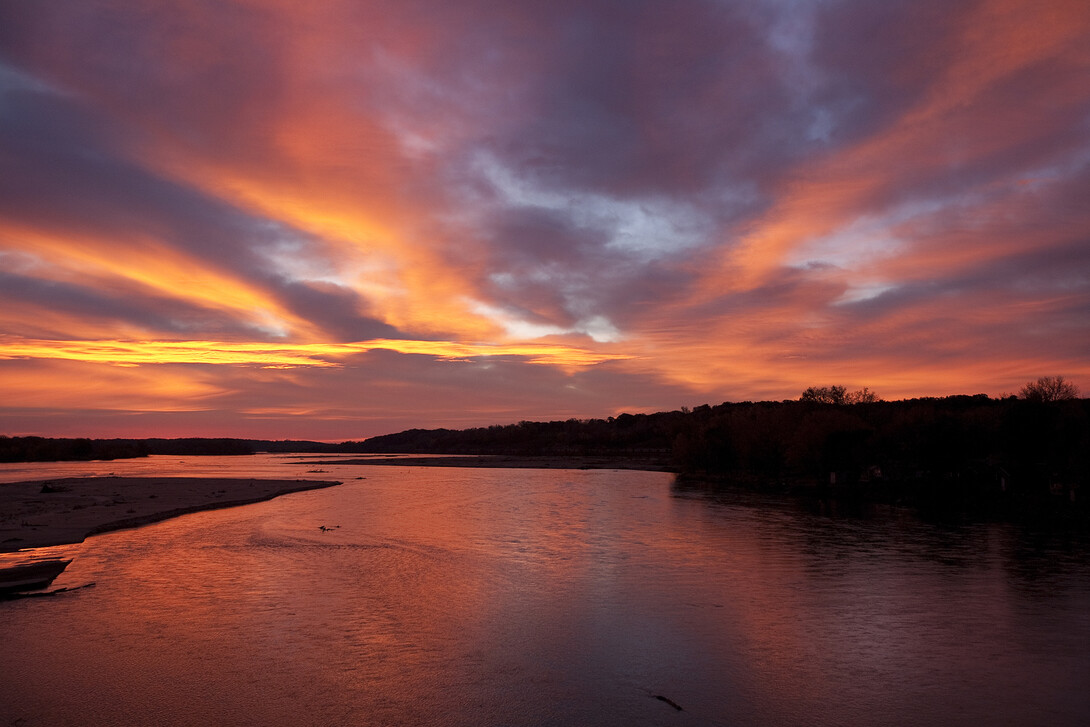
More than 230 will participate in the University of Nebraska’s water science and policy symposium and water law conference Oct. 15-16 at the Cornhusker Hotel.
The Oct. 15 symposium focuses on “Changes: Climate, Water and Life on the Great Plains,” while the Oct. 16 Water Law Conference aims primarily at the latest in Nebraska water law for practicing attorneys and water professionals.
The events are cosponsored by NU’s Nebraska Water Center, part of the Robert B. Daugherty Water for Food Institute; NU’s College of Law, the Natural Resources and Environmental Law Section of the Nebraska State Bar Association, and the U.S. Geological Survey’s Nebraska Water Science Center.
Morning sessions of the Tuesday symposium will look at the bigger picture of water issues that are of current interest to Nebraska and the Great Plains.
“We will be looking at water and planning, with climate change and variability as key drivers in planning, along with factors such as population growth, and agriculture, industry and ecosystem needs,” said event organizer and NWC assistant director Lorrie Benson.
Water planning is a topic of increasing interest as competing uses often vie with one another for a share of a limited and often overused resource, Benson said.
“Plenary presentations, as well as several of the afternoon breakout sessions, are designed to provide information to assist in planning efforts,” she said.
The day opens with a brief history of Nebraska water planning by retired UNL lecturer and consulting water resources engineer Mike Jess, followed by a presentation on the larger view on water planning by David Yates, National Center for Atmospheric Research and Stockholm Environment Institute. Yates’ expertise is water planning, including impacts from climate change.
Following Yates, Shannon McNeeley of the North Central Climate Science Center, a consortium at Colorado State University, Fort Collins, Colo., will discuss water-related climate change adaptations. McNeeley co-wrote the adaptation chapter for the recently released National Climate Assessment Report issued by the U.S. Global Change Program and is an expert in how people respond to and make decisions related to impacts from climate change.
Mike Hayes, director of UNL’s National Drought Mitigation Center, will talk about incorporating drought planning into the water planning process; and Alan Tomkins, director of the NU Public Policy Center, will discuss new research on public trust in and confidence in Nebraska’s natural resources districts and Nebraska Department of Natural Resources.
Other scheduled speakers include Karl Brooks, director of the Region VII office of the U.S. Environmental Protection Agency, Kansas City, Mo., addressing water quality as part of comprehensive water planning.
The Oct. 16 Water Law Conference opens with University of Nebraska law professor Anthony Schutz’s “Water Law 101,” a primer of important statutes and cases and their context to help listeners understand how and why they developed.
Other speakers include John Dernbach of Widener University School of Law, Chester, Penn. on “Creating a Legal Framework for Sustainability” and Kristin Linsley Myles of Munger, Tolles and Olson LLP, San Francisco, Calif. Myles will review “South Carolina v. North Carolina – an Original Jurisdiction Water Dispute from the Special Master’s Perspective.” She was special master for a dispute about the Catawba River.
“Certified Acres: What, Why, Who, Transfers and Records” will be delivered by Jon Schroeder of Schroeder and Schroeder PC, Curtis, Neb.
Lash Chaffin of the Nebraska League of Municipalities will speak on municipal legal options during times of drought and Don Blankenau of Blankenau Wilmoth Jarecke LLP, Lincoln, will give an update on legal issues in the contentious Republican River basin.
David Bargen of Rembolt Ludtke LLP, Lincoln, will talk about implications from a recent ruling in the Columbus sewer backup case and Nick Buda of Jacobsen, Orr, Lindstrom and Holbrook, P.C., LLO, Kearney, will review new laws, regulations and cases from Nebraska and around the U.S. Also on the itinerary is a presentation on “Technology, Globalization & the ABA Model Rules of Professional Conduct: Ethical Issues in the Information Age, Part II – Outsourcing” by Richard Dooling of the NU College of Law.
Continuing legal education credits for Nebraska, Colorado and Iowa will be offered for the water law conference. The water well standards and contractor’s licensing board has approved five hours of continuing education units for both Oct. 15 and 16.
Though Wednesday’s conference focuses on information of interest to practicing attorneys, it is open to all.
Registration, available at the door, is $190 for one day and $305 for both days.
Additional information about both events, including agendas, is available at http://watercenter.unl.edu. For more information, call 402-472-3305.







